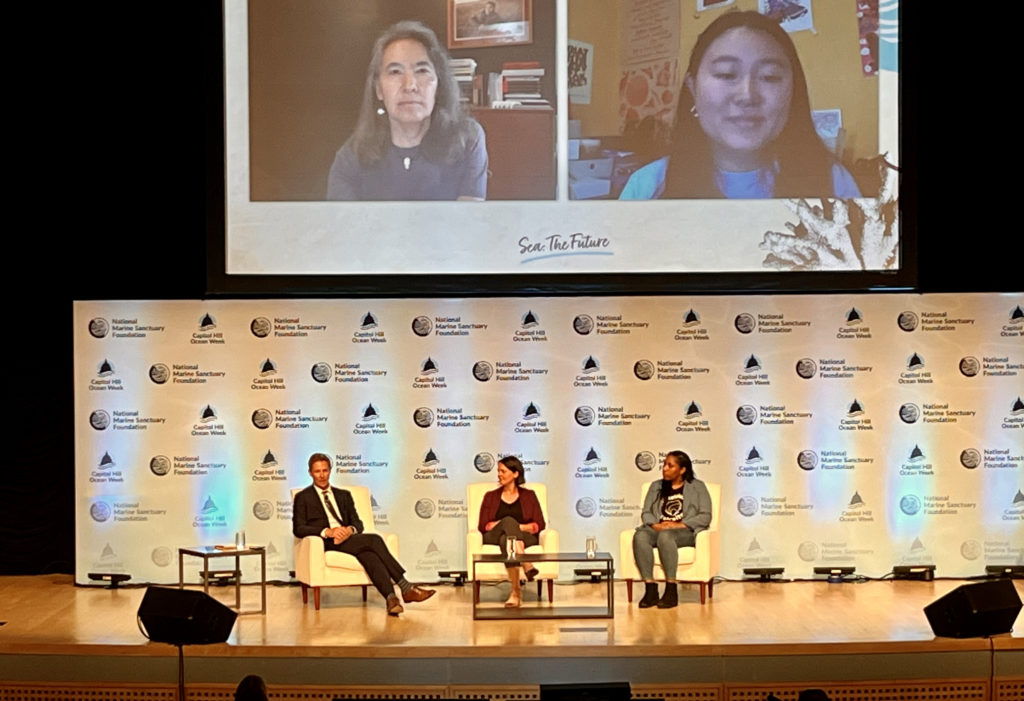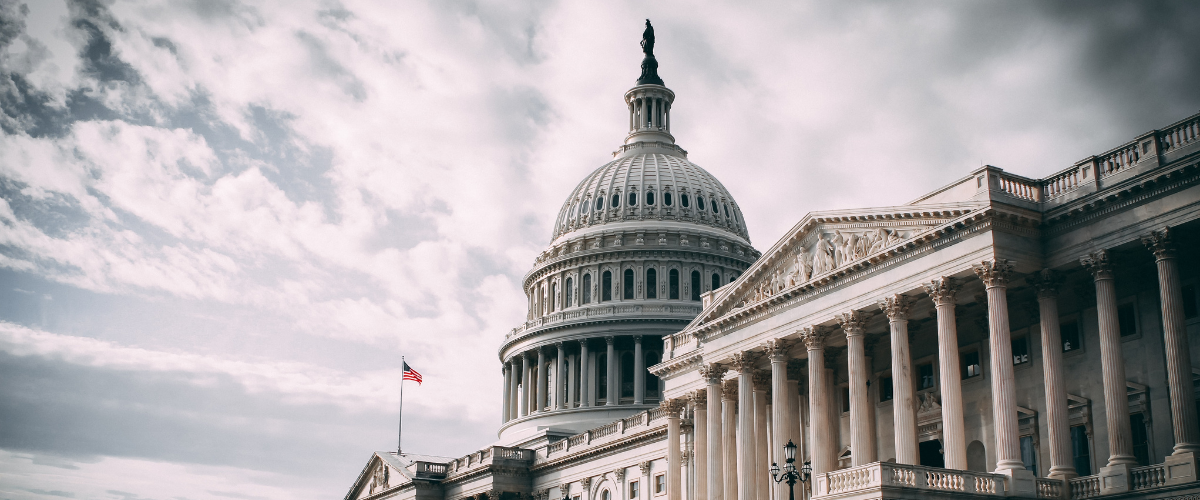Capitol Hill Ocean Week (CHOW), convened by the National Marine Sanctuary Foundation, was a multi-day conference that convened policymakers, scientists, managers, business leaders, conservationists, educators, students, and members of the public to engage in dialogue and debate on significant issues that impact our ocean and Great Lakes and to propose innovative policies and partnerships to address these issues.

CHOW 2022 Sea: The Future, which took place June 7-9 in Washington, D.C., was open to the public and free to attendees. Attendees could participate in-person or virtually using a virtual platform.
Food from the Sea | Tuesday 7 June 2022 | 1:15-2:30PM ET

We rely on our ocean and Great Lakes for food and culture. This plenary explored how we manage food from the salt and freshwater seas and what role they play in global and national food security and protecting cultures in the future.
Dr. Michelle Tigchelaar, Research Scientist at the Stanford Center for Ocean Solutions and member of the Blue Food Assessment Core Team, joined this plenary to discuss the impacts of climate change on blue food systems. Tigchelaar is a co-lead author of the Blue Food Assessment Climate Change paper “Compound Climate Risks Threaten Aquatic Food System Benefits.”
Other session speakers included:
- John Serafini, CEO, HawkEye 360
- Dr. Paul Doremus (moderator), Deputy Assistant Administrator for Operations, NOAA Fisheries
- Imani Black, Founder and CEO, Minorities In Aquaculture
- Dr. Dalee Sambo Dorough, Chairperson, Inuit Circumpolar Council
- Feini Yin, Program Administrator, Fishadelphia
During the session, the panelists highlighted the broad diversity of blue food species, systems and actors. “These systems are very diverse,” said Tigchelaar. “And different systems face different climate hazards.” People and communities that rely on blue food for food security and livelihoods are diverse as well. Dorough noted that for Indigenous Peoples, particularly in the Arctic region, marine food systems are part of “culture, identity and pride.” Black and Yin highlighted that reducing barriers to access and involvement in fisheries and aquaculture—for members of the Minorities in Aquaculture community as well as local communities in Philadelphia—can encourage inclusion and bolster community and food system resilience.
While the panelists shared challenges that blue food systems face—from the impacts of climate change and illegal, unreported and unregulated (IUU) fishing to silos and the underrepresentation of both Indigenous Peoples and local communities in decision making frameworks—they also shared opportunities for transformation. Yin emphasized a need to manage fisheries both sustainably and equitably while supporting a diverse consumer base and underutilized blue food species. Dorough called for an increased understanding of cultural contexts, knowledge and perspectives and recognition of the rights of Indigenous Peoples around the world.
Tigchelaar highlighted holistic solutions for blue food transformation, especially in the lead-up to the United Nations Ocean Conference. “Blue foods need to be integrated into food system conversations and discussions more broadly, including in nationally determined contributions (NDCs) and national climate adaptation plans. We also need to harness and protect the diversity of blue foods in the sector through investment, regulation, research and development, and consumption,” she said. “Diverse food systems really can help create resilience in the face of climate change. Ocean and food policy decision makers should act with the urgency necessary to meet the 2030 Sustainable Development Goals.”
Read more highlights from the session
Read more about Capitol Hill Ocean Week >
Read more about the paper “Compound Climate Risks Threaten Aquatic Food System Benefits” >








